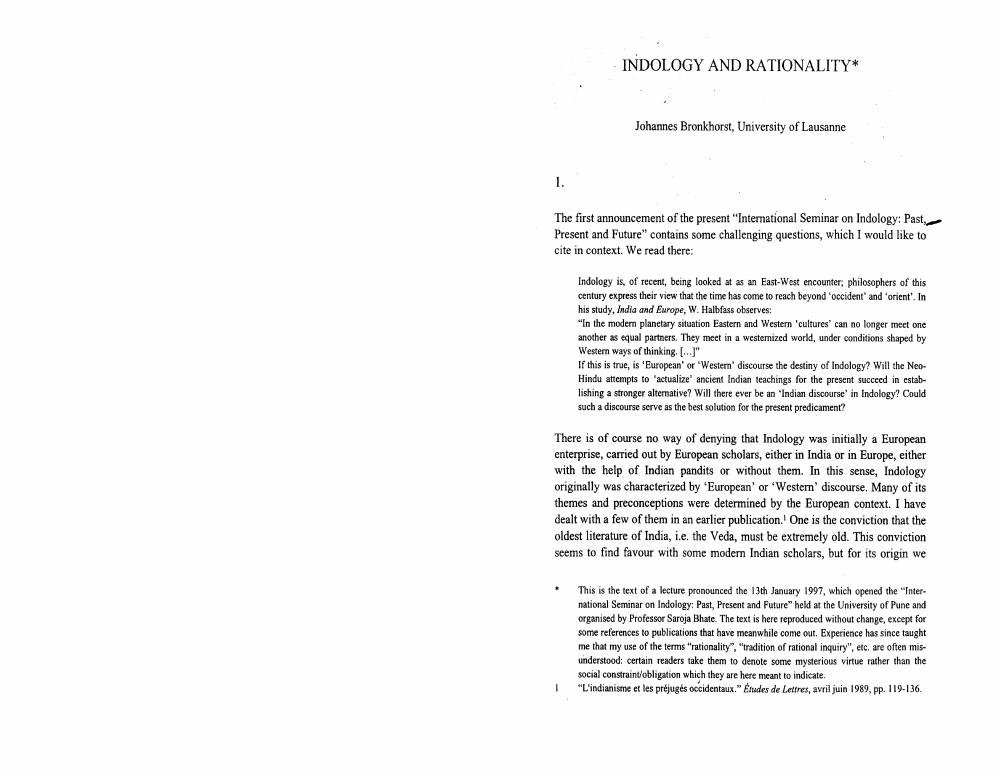Book Title: Indology And Rationality Author(s): Johannes Bronkhorst Publisher: Johannes Bronkhorst View full book textPage 1
________________ INDOLOGY AND RATIONALITY* Johannes Bronkhorst, University of Lausanne The first announcement of the present "International Seminar on Indology: Past Present and Future" contains some challenging questions, which I would like to cite in context. We read there: Indology is, of recent, being looked at as an East-West encounter, philosophers of this century express their view that the time has come to reach beyond 'occident' and 'orient'. In his study, India and Europe, W. Halbfass observes: "In the modern planetary situation Eastern and Western cultures can no longer meet one another as equal partners. They meet in a westemized world, under conditions shaped by Western ways of thinking, [...]" If this is true, is 'European' or 'Western discourse the destiny of Indology? Will the Neo Hindu attempts to 'actualize' ancient Indian teachings for the present succeed in estab lishing a stronger alternative? Will there ever be an Indian discourse in Indology? Could such a discourse serve as the best solution for the present predicament? There is of course no way of denying that Indology was initially a European enterprise, carried out by European scholars, either in India or in Europe, either with the help of Indian pandits or without them. In this sense, Indology originally was characterized by "European' or 'Western discourse. Many of its themes and preconceptions were determined by the European context. I have dealt with a few of them in an earlier publication. One is the conviction that the oldest literature of India, i.e. the Veda, must be extremely old. This conviction seems to find favour with some modern Indian scholars, but for its origin we This is the text of a lecture pronounced the 13th January 1997, which opened the "International Seminar on Indology: Past, Present and future held at the University of Pune and organised by Professor Saroja Bhate. The text is here reproduced without change, except for some references to publications that have meanwhile come out. Experience has since taught me that my use of the terms "rationality","tradition of rational inquiry", etc. are often misunderstood: certain readers take them to denote some mysterious virtue rather than the social constraint/obligation which they are here meant to indicate. "L'indianisme et les préjugés occidentaux." Enudes de Lettres, avril juin 1989, pp. 119-136. 1Page Navigation
1 2 3 4 5 6 7 8 9 10 11 12 13
